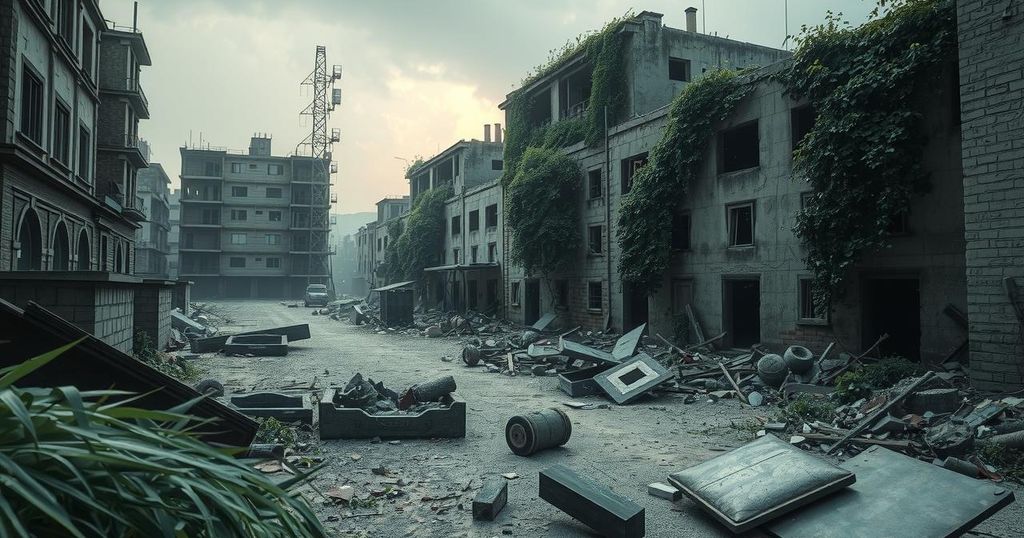World news
AFRICA, BELGIUM, CIVIL WAR, CONGO (KINSHASA), CORN, CORNEILLE NANGAA, DEMOCRACY, DEMOCRATIC REPUBLIC OF CONGO, DRC, EUROPE, FELIX TSHISEKEDI, GOMA, HUMANITARIAN, KINSHASA, KIVU, M23, MILITARY, NBC NEWS, NORTH AMERICA, RWANDA, SOUTH KIVU, TEXAS, TSHISEKEDI, U. S, UNITED NATIONS, UNITED STATES, WAR
Fatima Alavi
0 Comments
Escalating Conflict in the DRC: M23 Rebels Threaten Stability and Human Security
The Democratic Republic of Congo is facing renewed conflict as the M23 rebel group expands its territory. This escalation threatens regional stability, with significant humanitarian consequences and potential global resource implications. The Congolese government vows to resist M23’s advance, while international reactions remain critical but measured, given the strategic importance of the region’s mineral wealth.
The Democratic Republic of Congo (DRC) is currently facing a resurgence of violence as the M23 rebel group seeks to extend its dominance, marking a significant escalation in a conflict that has persisted for decades. This conflict, which draws in various factions over control of vast mineral resources, has already led to mass displacements, with the United Nations reporting over 400,000 individuals displaced recently. The humanitarian situation remains dire, particularly in Goma, where access to basic necessities has severely diminished.
Goma’s control by M23 has intensified fears of a broader war, particularly as the DRC government mobilizes forces to counter the rebels’ advances. President Félix Tshisekedi responded by calling the offensive a “declaration of war” by Rwanda, and urged the reconquest of every lost territory. International reactions have varied, with calls for assistance growing amid the rising toll of violence, including casualties among peacekeeping forces.
This ongoing conflict has roots extending back to DRC’s independence from Belgium in 1960 and involves various actors, including regional dynamics involving Rwanda and long-standing ethnic tensions. Ethnic Tutsi groups and their interests play a significant role in the ongoing strife, particularly through the M23, which claims to represent Tutsi rights within a predominantly Hutu society.
The DRC contains vast mineral wealth essential for global technology industries, particularly cobalt, where an overwhelming share is under Chinese control. This economic backdrop complicates the humanitarian situation, as armed militias often exploit these resources without effective military oversight from the Congolese government. Despite China’s condemnation of the M23’s actions, the threat to cobalt supply remains manageable for now.
Given Rwanda’s historical connections to the conflict, its role is once again under scrutiny. Notably, international responses to Rwanda’s involvement seem subdued compared to past reactions, as many Western countries continue to engage with Rwanda for strategic reasons. This complex web of alliances and conflicts suggests that the ongoing situation in the DRC warrants close observation due to its implications for regional stability and international mineral supply chains.
The Democratic Republic of Congo has been embroiled in conflict since its independence in 1960, primarily due to ethnic tensions and the fight for control over its mineral-rich lands. The latest conflict involving the M23 rebel group has escalated since January 2023, leading to significant civilian displacement and a deteriorating humanitarian situation. Control over regions like Goma is crucial not only for political power but also for the lucrative mineral trade that supports global industries, including technology and electric vehicles. The involvement of Rwanda and the consequential dynamics portray a complex scenario that necessitates international attention.
In summary, the escalating violence in the DRC, particularly the actions of the M23 rebel group, poses significant humanitarian challenges and risks igniting a larger regional conflict. The government’s mobilization efforts, alongside past ethnic grievances and international reactions, indicate a precarious balance of power in the region. With vast mineral resources at stake, the implications of this conflict extend far beyond Congolese borders, particularly as global demand for essential minerals continues to rise.
Original Source: www.nbcnews.com




Post Comment